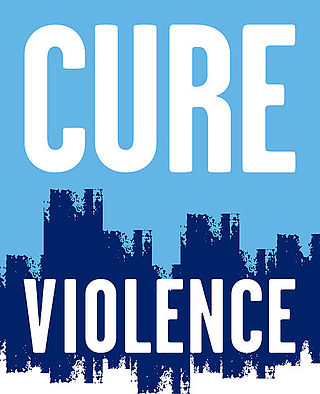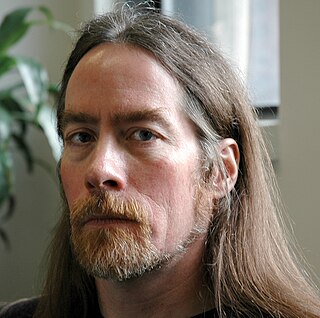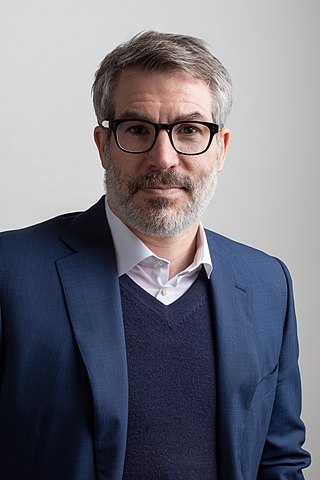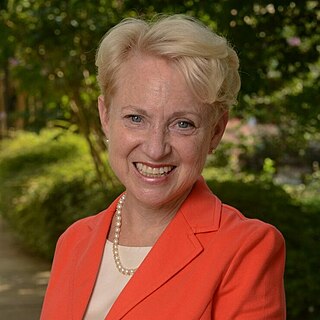Related Research Articles

Gun control, or firearms regulation, is the set of laws or policies that regulate the manufacture, sale, transfer, possession, modification, or use of firearms by civilians.
Violence is the use of physical force to cause harm to people, or non-human life, such as pain, injury, death, damage, or destruction. Some definitions are somewhat broader, such as the World Health Organization's definition of violence as "the intentional use of physical force or power, threatened or actual, against oneself, another person, or against a group or community, which either results in or has a high likelihood of resulting in injury, death, psychological harm, maldevelopment, or deprivation."
The Behavioral Analysis Unit (BAU) is a department of the Federal Bureau of Investigation's National Center for the Analysis of Violent Crime that uses behavioral analysts to assist in criminal investigations. Their mission is to provide behavioral-based investigative and/or operational support by applying case experience, research, and training to complex and time-sensitive crimes, typically involving acts or threats of violence.
School violence includes violence between school students as well as attacks by students on school staff and attacks by school staff on students. It encompasses physical violence, including student-on-student fighting, corporal punishment; psychological violence such as verbal abuse, and sexual violence, including rape and sexual harassment. It includes many forms of bullying and carrying weapons to school. The one or more perpetrators typically have more physical, social, and/or psychological power than the victim. It is a widely accepted serious societal problem in recent decades in many countries, especially where weapons such as guns or knives are involved.
Crime prevention is the attempt to reduce and deter crime and criminals. It is applied specifically to efforts made by governments to reduce crime, enforce the law, and maintain criminal justice.

Gun violence is a term of political, economic and sociological interest referring to the tens of thousands of annual firearms-related deaths and injuries occurring in the United States.
Operation Ceasefire (also known as the Boston Gun Project and the Boston Miracle) is a problem-oriented policing initiative implemented in 1996 in Boston, Massachusetts. The program was specifically aimed at youth gun violence as a large-scale problem. The plan is based on the work of criminologist David M. Kennedy.
Project Safe Neighborhoods(PSN) is a national initiative by the United States Department of Justice with the help of the Bureau of Alcohol, Tobacco, Firearms and Explosives (ATF) to reduce gun violence in the United States. The project's aim is to improve neighborhood safety and decrease gun violence in American communities. Project Safe Neighborhoods was established in 2001 through support from President George W. Bush. The program expands upon strategies used in Boston's Operation Ceasefire, and in Richmond, Virginia's Project Exile.

Lawrence W. Sherman is an experimental criminologist and police educator who is the founder of evidence-based policing. Since 2022 he has served as Chief Scientific Officer of the Metropolitan Police at Scotland Yard, as well as Wolfson Professor of Criminology Emeritus at the University of Cambridge Institute of Criminology Wolfson Professor of Criminology.

Violent Crime Impact Teams (VCIT) in the United States work proactively to identify, disrupt, arrest and prosecute the most violent criminals through innovative technology, analytical investigative resources and an integrated federal, state and local law enforcement strategy along with the leading federal law enforcement agency for the VCIT, the Bureau of Alcohol, Tobacco, Firearms and Explosives (ATF).
Crime rates in the state of Washington grew rapidly to large levels from 1960 to 1980, however slowed in growth from 1980 onward. Although the cause of this drop in crime growth from the 1980s cannot be directly determined, it was believed to have been a result from several law enforcement initiatives & policies implemented throughout the state of Washington and across the United States, such as abortion access.
The State of Texas is considered to have some of the most relaxed gun laws in the United States. Public concerns over gun control in Texas have increased in recent years as Mexican drug cartels continue to commit violent crimes closer to Texas' stretch of the Mexico–United States border. They have also increased due to the number of incidents, including misuse of firearms stolen from other sources.

Cure Violence is a public health approach to violence prevention and reduction. It aims to stop the spread of violence in communities by using the methods and strategies associated with epidemic disease control: detecting and interrupting conflicts, identifying and treating the highest risk individuals, and changing social norms.

David M. Kennedy is an American criminologist, professor, action researcher, and author specializing in crime prevention among inner city gangs, especially in the prevention of violent acts among street gangs. Kennedy developed the Operation Ceasefire group violence intervention in Boston in the 1990s and the High Point Model drug market intervention in High Point, North Carolina, in 2003, which have proven to reduce violence and eliminate overt drug markets in jurisdictions around the United States. He founded the National Network for Safe Communities in 2009 to support cities using these and related strategies.

Though the Cuban government does not release official crime statistics, Cuba is considered one of the safer countries in Latin America. Gun crime is virtually nonexistent, drug trafficking has been largely curtailed, and there is below-average crisis intervention from police. Murder rates are also below those of most Latin American countries, with an intentional homicide rate of 5.00/100,000 inhabitants in 2016, lower than any other country in the region.
Anthony Allan Braga is an American criminologist and the Jerry Lee Professor of Criminology at the University of Pennsylvania. Braga is also the Director of the Crime and Justice Policy Lab at the University of Pennsylvania. He previously held faculty and senior research positions at Harvard University, Northeastern University, Rutgers University, and the University of California at Berkeley. Braga is a member of the federal monitor team overseeing the reforms to New York City Police Department (NYPD) policies, training, supervision, auditing, and handling of complaints and discipline regarding stops and frisks and trespass enforcement.
The National Network for Safe Communities (NNSC) is a research center at City University of New York John Jay College of Criminal Justice. The NNSC works with communities to reduce violence, minimize arrest and incarceration, and increase trust between law enforcement and the public. Working in partnership with cities around the country the NNSC provides advising on implementing evidence-based violence reduction strategies. Additionally, the NNSC provides guidance on how to build trust between law enforcement and the communities it serves, facilitates connections between practitioners within and across jurisdictions, and serves as a resource for knowledge about violence prevention and reduction strategies.

Thomas Abt is an American author, crime researcher, and former government official specializing in evidence-informed approaches to reducing crime in urban areas. His book, Bleeding Out: The Devastating Consequences of Urban Violence and a Bold New Plan for Peace in the Streets, was published in June 2019 by Basic Books.
Community crime prevention relates to interventions designed to bring reform to the social conditions that influence, and encourage, offending in residential communities. Community crime prevention has a focus on both the social and local institutions found within communities which can influence crime rates, specifically juvenile delinquency.

Laurie Robinson is an American scholar and public servant who has held multiple positions across government, academia, and the nonprofit sector. Robinson's most notable roles include serving as Assistant Attorney General in charge of the U.S. Department of Justice Office of Justice Programs under former Presidents Bill Clinton and Barack Obama, and co-chairing Obama's Task Force on 21st Century Policing. She also served on the congressionally created Charles Colson Task Force on Federal Corrections and on an independent commission that explored the potential closure of New York City's Rikers Island jail complex. Most recently, Robinson served as founding Chair of the Board of Directors of the Council on Criminal Justice, a nonpartisan policy and research organization.
References
- ↑ "Focused Deterrence Strategies". Crimesolutions.gov. National Institute of Justice. 11 September 2013. Retrieved 20 April 2017.
- ↑ "What are Focused Deterrence Strategies?". Center for Evidence-Based Crime Policy. George Mason University. Retrieved 20 April 2017.
- ↑ Braga, Anthony (2017). "Focused Deterrence Strategies". Oxford Research Encyclopedia of Criminology and Criminal Justice. Oxford University Press.
- ↑ Braga, AA; Weisburd, DL (18 March 2015). "Focused deterrence and the prevention of violent gun injuries: practice, theoretical principles, and scientific evidence". Annual Review of Public Health. 36: 55–68. doi: 10.1146/annurev-publhealth-031914-122444 . PMID 25494051.
- ↑ Engel, Robin S.; Tillyer, Marie Skubak; Corsaro, Nicholas (June 2013). "Reducing Gang Violence Using Focused Deterrence: Evaluating the Cincinnati Initiative to Reduce Violence (CIRV)". Justice Quarterly. 30 (3): 403–439. doi:10.1080/07418825.2011.619559. S2CID 40777215.
- ↑ "Gun Violence Prevention Strategy: Focused Deterrence". National Institute of Justice. Retrieved 20 April 2017.
- ↑ Western, Bruce; Muhammad, Khalil Gibran; Negussie, Yamrot; Backes, Emily, eds. (2023). Read "Reducing Racial Inequality in Crime and Justice: Science, Practice, and Policy" at NAP.edu. doi:10.17226/26705. ISBN 978-0-309-69337-0.